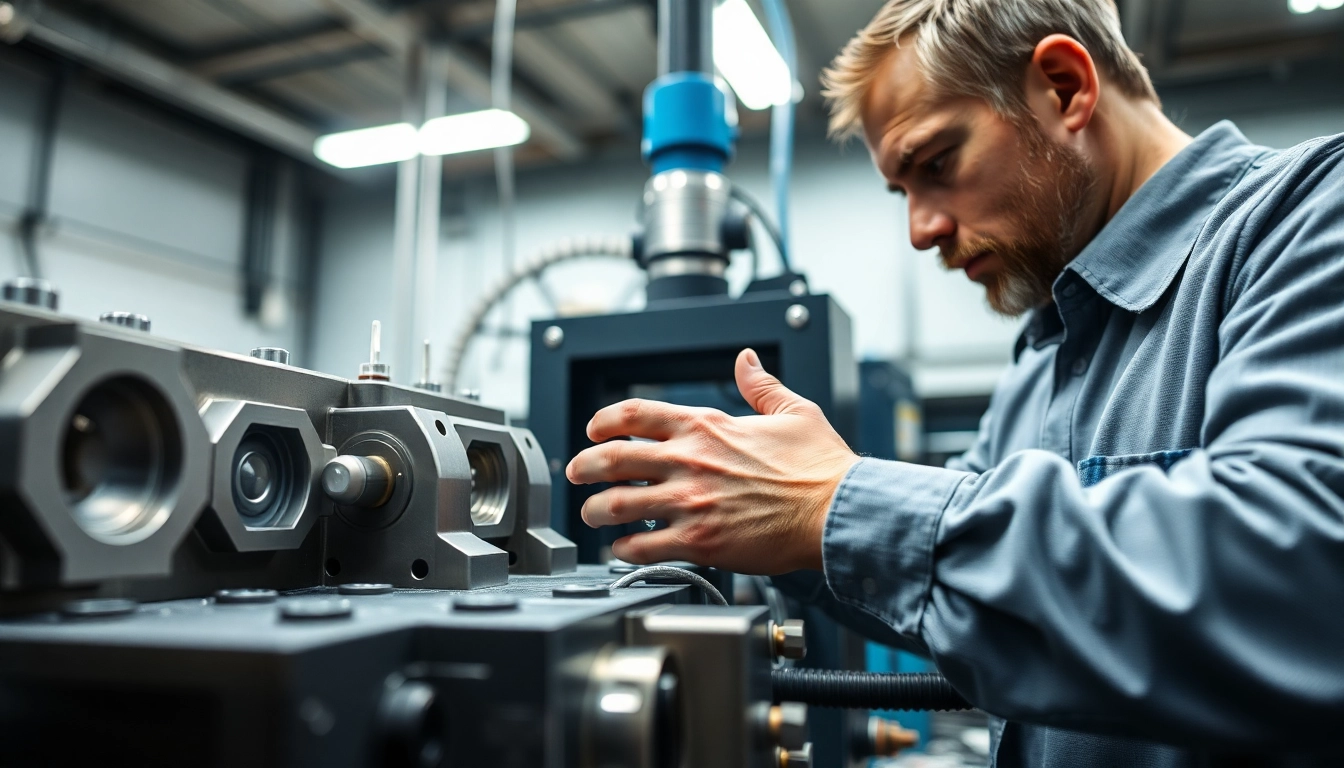Understanding the Role of a Mold Maker for Injection Molding
The process of injection molding is central to the production of high-quality plastic parts across various industries. To achieve this, a skilled mold maker for injection molding is essential. This professional is responsible for creating the molds that shape the plastic into specific forms, which means their expertise directly impacts the quality and efficiency of the manufacturing process.
What is a Mold Maker?
A mold maker is a specialized tradesperson who designs and fabricates molds used for various types of production processes, including plastic injection molding. They are trained in various techniques and technologies to ensure that molds meet precise specifications, allowing for the efficient production of plastic parts in high volumes.
Key Responsibilities and Skills
The responsibilities of a mold maker include:
- Designing molds based on CAD models or client specifications.
- Fabricating molds using various machining processes such as CNC machining and electrical discharge machining (EDM).
- Testing molds for precision by conducting trial runs and making necessary adjustments.
- Repairing and maintaining molds to ensure longevity and performance.
Essential skills for a mold maker include strong mechanical aptitude, proficiency with CAD software, knowledge of materials, and meticulous attention to detail. Effective problem-solving skills and communication abilities are also crucial for collaborating with clients and production teams.
Importance of Expertise in Injection Molding
Expertise in injection molding is critical as even minor inaccuracies in mold design can lead to major defects in the final product. A proficient mold maker ensures that molds are created with precision to minimize production errors, reduce waste, and optimize efficiency. Furthermore, their understanding of materials and manufacturing processes allows them to select the best techniques and tools necessary for specific applications.
Criteria for Selecting a Mold Maker for Injection Molding
Choosing the right mold maker is pivotal for the success of your injection molding project. Here are criteria to consider:
Assessing Experience and Specializations
When selecting a mold maker, evaluate their experience within your industry or specific application. An experienced mold maker brings practical knowledge and insights that can enhance your project. Look for providers who specialize in certain types of molds (such as multi-cavity, high-precision, or complex geometries) that align with your project needs.
Evaluating Tools and Technology Used
The technology and tools a mold maker uses can significantly influence the quality and efficiency of mold production. Ensure your selected mold maker utilizes up-to-date machinery, such as CNC machining centers, EDM machines, and 3D printing capabilities. This equipment allows for enhanced precision, which is vital for creating high-quality molds.
Checking Reviews and Case Studies
Researching reviews and case studies from previous clients provides insights into a mold maker’s reliability and quality of work. Positive testimonials and documented project successes are indicators of a mold maker’s capabilities. Don’t hesitate to ask for samples or references from previous projects that are similar to yours.
Cost Considerations When Hiring a Mold Maker for Injection Molding
The cost of hiring a mold maker can vary significantly based on various factors. Understanding these can help you make informed decisions:
Understanding Pricing Structures
Mold making costs are typically structured around several elements including design complexity, mold type, and production volume. Simple molds may cost between $3,000 and $6,000, while larger or more intricate molds can escalate quickly, sometimes reaching $50,000 or more. It is crucial to receive a detailed quote before committing.
Estimating Total Project Costs
When estimating total project costs, consider not only the initial mold creation but also prototyping, revisions, and potential modifications during production. Always account for the lifecycle of the molds, including expected maintenance and the number of parts they will produce. Understanding these factors can prevent budget overruns.
Cost vs. Quality: Making the Right Choice
While it may be tempting to choose a lower-cost option, remember that the quality of the mold directly impacts not only the production process but also the final product’s quality. Aim for a balance between cost and quality, focusing on value rather than simply the lowest bid.
Common Challenges Faced with Mold Makers for Injection Molding
Identifying Quality Issues
One of the primary challenges in the mold-making process is ensuring the end product meets the required quality standards. Regular inspections and testing during the production of molds can help catch any defects early. Incorporating quality assurance measures and utilizing advanced technology will minimize quality-related challenges.
Managing Communication and Timelines
Communication breakdowns can lead to missed deadlines or misunderstood requirements. Establishing clear lines of communication, setting realistic timelines, and having regular status updates can foster better collaboration. Utilize project management tools to ensure everyone is on the same page.
Overcoming Technical Complications
Technical complications, such as material inconsistencies or machinery failures, can disrupt the mold-making process. Ensuring the mold maker has adequate support and troubleshooting knowledge is crucial for quickly resolving such issues. Building a good working relationship with your mold maker can yield benefits in overcoming these challenges.
Best Practices for Working with Your Mold Maker for Injection Molding
To optimize the working relationship with your mold maker, consider the following best practices:
Establishing Clear Communication
Effective communication is key in any successful project. Be explicit about your project requirements, expectations, and respect for the mold maker’s expertise. A clear definition of roles and responsibilities can also aid in a smoother workflow.
Defining Project Goals and Specifications
Having clear, well-documented project goals and specifications can prevent misunderstandings down the line. Discuss tolerances, materials, and production volumes in detail. This early investment in planning pays off during the manufacturing stage.
Review and Feedback Loops
Incorporate review and feedback loops at different stages of the process. Regularly assess the mold creation progress and be open to providing feedback to ensure final products align with your expectations. This iterative approach fosters a collaborative atmosphere and promotes quality control.
